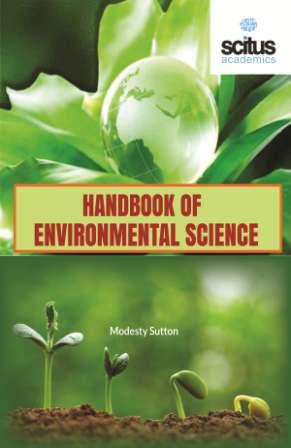Since the foundation of civilization, human beings have been intricate in ecology. Even our earliest scriptures have highlighted environmental conservation practices and values. It is even more important than ever for society as a whole to have a clear understanding of environmental concerns and to pursue sustainable development practices. The value of environmental sciences and environmental studies cannot be questioned. The need for sustainable development is key to the future of humanity. The ongoing challenges of pollution, loss of life, solid waste management, environmental degradation, concerns such as economic productivity and national security, global warming, the deterioration of the ozone layer and the loss of biodiversity have made us aware of environmental issues. Environmental studies make us aware of the importance of protecting and sustaining our mother earth and of the destruction caused by the release of pollutants to the atmosphere. The increase in human and animal population, industries and other problems makes life difficult. Environmental science involves the study of physical, chemical and biological processes taking place on Earth, as well as the social, political and cultural processes affecting the world.
This book is intended to expose students to the relationship between humans and their geological environment: the Earth. It will focus on understanding the processes that form the earth’s surface and how these processes affect human behavior. At present, a large number of environmental issues have grown in size and complexity day by day, challenging the survival of human beings on Earth. It has been well known that environmental issues such as global warming and loss of ozone, acid rain, marine pollution and biodiversity are not just national issues but global issues and therefore need to be resolved by international efforts and collaboration. In addition to the useful recommendations in environmental studies, students should understand these topics.
Environmental studies have become important at present. This book also presents basic scientific knowledge and understanding of how our world works from an environmental point of view. Topics covered include basic principles of ecological function; biodiversity and conservation; human population growth; water resources and management; water, air and soil pollution; climate change; energy resources and sustainability.









yqx4n –
generic clomid walmart clomid or serophene for men get clomiphene without a prescription cost of cheap clomid prices cost of clomid price how can i get cheap clomiphene price can i purchase clomid pills
can you buy cialis over counter usa –
I am in fact happy to coup d’oeil at this blog posts which consists of tons of worthwhile facts, thanks representing providing such data.
buy flagyl cheap –
This is the big-hearted of criticism I positively appreciate.
bkth6 –
azithromycin buy online – ciplox 500 mg cheap buy flagyl 200mg generic
ws5or –
buy semaglutide generic – periactin 4 mg sale buy cyproheptadine without a prescription
l7uia –
motilium 10mg pills – buy domperidone generic cyclobenzaprine online buy
8zwny –
purchase inderal for sale – inderal 10mg oral buy cheap generic methotrexate
ljem9 –
amoxicillin pills – valsartan 160mg cost order combivent without prescription
meth9 –
zithromax uk – cost azithromycin 250mg nebivolol 20mg tablet
c6l96 –
clavulanate uk – atbio info where to buy ampicillin without a prescription
p60p9 –
buy generic esomeprazole 20mg – https://anexamate.com/ purchase nexium without prescription
44ozx –
order coumadin without prescription – coumamide.com buy cozaar 25mg pill
zwofa –
order meloxicam without prescription – swelling meloxicam generic
5o9d5 –
order prednisone generic – corticosteroid cheap deltasone 10mg
oe9xv –
best drug for ed – https://fastedtotake.com/ buying ed pills online
k6jeh –
purchase amoxil sale – https://combamoxi.com/ buy amoxicillin sale
tisjs –
forcan price – https://gpdifluca.com/ buy generic diflucan 100mg
32idg –
cenforce cheap – buy cenforce 50mg generic buy cenforce 50mg online cheap
27o6x –
buy cialis with american express – https://ciltadgn.com/# does cialis lowers blood pressure
ConnieTed –
how to get ranitidine without a prescription – zantac 300mg without prescription order zantac 150mg online
2hndq –
does cialis lower your blood pressure – https://strongtadafl.com/ is there a generic cialis available?
ConnieTed –
This is the description of topic I get high on reading. click
u4keh –
sildenafil 50 mg for sale – https://strongvpls.com/ viagra with dapoxetine 100 60 mg
z0elp –
Proof blog you have here.. It’s severely to find elevated worth writing like yours these days. I truly respect individuals like you! Take care!! where can i buy prednisone online
ConnieTed –
The depth in this ruined is exceptional. https://ursxdol.com/ventolin-albuterol/
rbnf9 –
This website really has all of the low-down and facts I needed adjacent to this participant and didn’t positive who to ask. https://prohnrg.com/product/rosuvastatin-for-sale/
mxbkw –
Facts blog you have here.. It’s intricate to on elevated worth script like yours these days. I really respect individuals like you! Withstand vigilance!! https://aranitidine.com/fr/acheter-propecia-en-ligne/
ConnieTed –
The sagacity in this ruined is exceptional. https://ondactone.com/simvastatin/
ConnieTed –
With thanks. Loads of erudition!
https://proisotrepl.com/product/baclofen/
ConnieTed –
More delight pieces like this would make the web better. http://furiouslyeclectic.com/forum/member.php?action=profile&uid=24579
ConnieTed –
buy dapagliflozin 10mg online cheap – on this site order generic forxiga 10mg
ConnieTed –
orlistat without prescription – site order orlistat 120mg pill
ConnieTed –
This is the description of topic I take advantage of reading. http://zqykj.com/bbs/home.php?mod=space&uid=303381
Wqpgvon –
You can conserve yourself and your ancestors close being cautious when buying panacea online. Some druggist’s websites control legally and provide convenience, privacy, cost savings and safeguards over the extent of purchasing medicines. buy in TerbinaPharmacy https://terbinafines.com/product/keppra.html keppra
uedy6 –
With thanks. Loads of conception! TerbinaPharmacy
internet roulette –
I couldn’t hold back commenting. Warmly written!